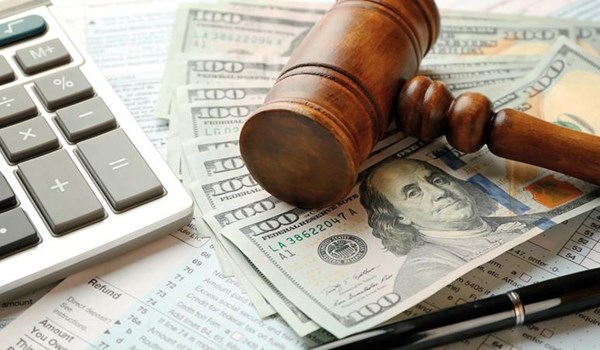Donald Trump’s election with Republican House and Senate majorities has put the Internal Revenue Service back in the spotlight. The agency lost $20 billion in funding under the latest deal to avoid a government shutdown, and further cuts to its enforcement budget are likely in the next Congress.
Democrats denounce such moves as harmful to federal revenues and tax fairness; Republicans cheer them for limiting government. Unfortunately, neither side tends to point out that an adequately funded IRS is good for the U.S. economy.
Years of IRS underfunding have led to a massive unpaid tax bill, around half a trillion dollars a year. Beyond lowering revenues, the sheer magnitude of this tax evasion has implications across the economy, providing competitive advantages to those able and willing to avoid their tax obligations. Less enforcement funding will only worsen this problem.
The hundreds of billions of dollars in taxes that haven’t been paid are not spread evenly across taxpayers. They’re disproportionately owed by businesses with the greatest incentive and ability to shirk their tax burdens. These include self-employed entrepreneurs, businesses that deal in cash and large, private companies with complex operations. Companies that have less opportunities to evade taxes, and workers who are paid directly by an employer, are more likely to pay their taxes.
The unpaid taxes therefore work as a substantial subsidy for the businesses and taxpayers who evade them. In economic terms, lower taxes boost returns on investment for the businesses that avoid their obligations but not for others. That in turn distorts the way businesses operate in three primary ways.
First, the tax gap pushes more economic activity toward industries and occupations with opaque sources of income — such as construction businesses that deal mainly in cash. Our economy needs contractors, of course, but we don’t want an inordinate number of capable workers rushing into remodeling for cash simply because it offers an illegal tax break.
Similarly, we don’t want people choosing self-employment simply because it gives them better chances of dodging the IRS. Labor and capital markets work best when they’re driven by business considerations rather than tax evasion.
Second, tax-cheating businesses gain an advantage on each dollar of profit. A company that doesn’t pay taxes can take on investments that wouldn’t make financial sense if it were meeting its tax obligations. This means the scofflaw company can profitably expand while the complying company cannot, putting honest taxpayers at a competitive disadvantage.
Third, a portion of the economy is dedicated to the evasion itself. Skirting a tax bill can be a lot of work: It takes time and money to set up shell companies, safely store large amounts of cash and falsify documents. Rather than going to some productive use, this activity amounts to what economists consider a “deadweight loss” that does not help our economy expand in any way. Avoiding half a trillion dollars in taxes requires a lot of work and resources that serve no purpose other than to illegally lower tax bills.
The end result of widespread tax evasion is an economy that is far less efficient than it could be. Too many employees in cash-based industries, too many accountants setting up shell corporations and other distortions ultimately discourage investment by taxpaying businesses and suppress economic growth.
Providing the IRS with enough funds to enforce our nation’s tax code isn’t just about fairness and revenue. It’s also vital to the efficiency and productivity of our economy.
Ben Harris is the vice president and director of economic studies at the Brookings Institution and a former assistant Treasury secretary for economic policy.



